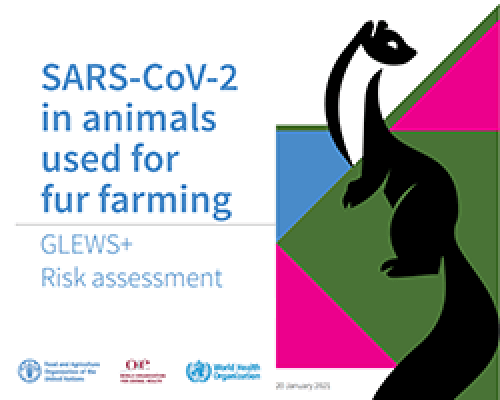Nothing is as simple as it seems in relation to Covid and the Northern Ireland protocol. The Financial Times reported this week that anonymous EU sources were voicing annoyance with recent efforts by Micheál Martin and Simon Coveney to persuade Brussels and London to dial down the heat in relation to the practical problems that have arisen in implementing the customs aspect of the protocol as they affect British goods going into Northern Ireland.
<p class="no_name">Apparently there is some resentment in certain circles in Brussels that Ireland seems to be acting as an intermediary rather than as a fully-fledged cheerleader for the hardline rhetoric coming from the Berlaymont.</p>
<p class="no_name">The paper quoted one EU diplomat as saying: “There is a growing concern that Dublin is tempted to follow a policy of equidistance towards the EU and UK on Northern Ireland.”</p>
<p class="no_name">The same source, recalling the EU’s steadfast support for Ireland in the Brexit process, added that “it would be rather risky if the Irish Government were to be seen as playing with European goodwill and solidarity”.</p>
<blockquote class="inline__content inline__content--pullquote">
It bears repetition that the attempted invocation of the protocol was utterly unlawful
These ominous noises come ill from the EU Commission. Exactly who played fast and loose with the protocol in the first place?
<p class="no_name">While Ursula Von Der Leyen sandbagged her commission with personal acceptance of responsibility for the shocking misuse of the protocol as stage furniture in its spat with the UK over vaccine exports, the sad fact remains that the episode went unexplained.</p>
<p class="no_name">Nor did she help by departing the EU parliament last week to hold another evasive press conference before MEPs could extract any explanation.</p>
<p class="no_name">It bears repetition that the attempted invocation of the protocol was utterly unlawful – even as a matter of EU law. The protocol simply never covered exports of vaccine at all.</p>
<aside class="related-articles--instream has-3">
</aside>
<p class="no_name">Moreover, the terms of the protocol and its 7th annexe clearly prohibited its abrupt unilateral invocation in these circumstances even if it had any application to vaccine exports – which it didn’t.</p>
<p class="no_name">In addition, the protocol itself provides for consultation in respect of the entirely different issues in relation to customs documentation and grace periods.</p>
<h4 class="crosshead">Confrontation</h4><p class="no_name">Dublin has every right to seek to defuse confrontation when hard-line exchanges and position-taking play directly into the hands of DUP irredentism and would-be back-sliders in the Tory party at Westminster.</p>
<p class="no_name">And unexplained gross misuse of the protocol at senior level in the commission gave Dublin every reason to want to cool the temperature and ensure that the protocol’s customs arrangements in Northern Ireland bedded down smoothly and pragmatically.</p>
<figure class="inline__content inline__content--image">
No one in Europe, with the possible exception of those personally to blame for the debacle, could have any complaint with the response of the Irish Government which was uniquely passive compared to what any other member state – big or small – would have done in similar circumstances.
<p class="no_name">This makes anonymous EU warnings published in the Financial Times coverage all the more difficult to accept at face value.</p>
<blockquote class="inline__content inline__content--pullquote">
The reality is that the EU may end up with recovery delayed by at least half a year behind the UK and other countries
It raises the possibility that what we are witnessing is but a glimpse of a deeper bout of arm-wrestling between the commission and the UK in which the Irish issues are a mere sideshow.
<p class="no_name">The commission may be playing “hard cop” in a wider conflict over vaccine-sharing and other issues, including the UK’s persistent demands to have continued access to EU financial markets without acceptance of EU rule-making authority in that sphere.</p>
<p class="no_name">On the issue of vaccines, for all the rhetoric about caution and the community method the reality is that the EU may end up with recovery delayed by at least half a year behind the UK and other countries.</p>
<p class="no_name">The social and economic cost of such massive delay is enormous, and may well become politically unsustainable. The reputation of the commission and other EU institutions is very much in issue. The European Centre for Disease Prevention and Control warnings about virus-mutation risks add to the pressure.</p>
<h4 class="crosshead">Social damage</h4><p class="no_name">Playing “hard cop” with the UK may be part of a wider process in which the commission hopes to radically cut the time-delay gap in order to minimise the economic and social damage of having lockdown restrictions carry over into the autumn.</p>
<p class="no_name">Sharing vaccine production and accelerating it may be a political imperative at EU level that puts concern for the Good Friday agreement in the halfpenny place.</p>
<p class="no_name">If EU’s diplomats now want to ratchet up the heat in pursuance of these agenda items, Irish calls to cool it may appear disloyal, much the same as Michael Corleone in the Godfather had to slap down his brother Fredo’s appeals for moderation in their dealings with rival families.</p>
<p class="no_name">High-minded concern for the Good Friday agreement and an open Irish Border matter far less now to an embattled commission which is looking exposed and vulnerable in relation to a great delay in mass vaccination right across the EU.</p>
<p class="no_name">This is, after all, what realpolitik actually means.</p>














